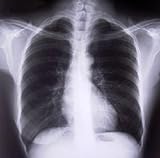Lung Cancer Symptoms: What to Look For.
Article by James S. Pendergraft
Lung cancer symptoms are very elusive and misleading. Mostly the condition is diagnosed only after having reached advanced stages. As of now there is no screening procedure for lung cancer. Symptoms are almost non existent where lung cancer is concerned.
There might be a mild cough or shortness of breath that can also be attributed to some respiratory infections. This is the main reason as to why most of the lung cancer cases go undiagnosed in the early stages. Only a meagre 16% of the cases are diagnosed early enough to facilitate treatment and cure.
Some of the symptoms that we can investigate are as follows:
1-A new persistent cough that refuses to go away. Smokers usually have cough but if they have cancer the severity of the cough would be different.
2-Chest pain is another indication that usually goes unnoticed. The pain can deepen with difficulty in breathing accompanied with cough or laugh.
3-The throat is hoarse and when accompanied with wheezing can indicate inflammation of the lungs which could be cancer.
4-There is gradual loss of weight due to loss of appetite.
5-Hemoptysis or coughing up blood is a sure indication of cancer. The coughed up phlegm would be rust colored showing the presence of blood.
6-The patient can suffer from shortness of breath due to blockage of air caused by pleural effusion or fluid collection around the lungs or spread of tumor in the lungs.
7-Repeated respiratory illnesses like bronchitis and pneumonia are a cause for concern. This could be indicative of lung cancer.
The cancer metastasizes or spreads to other organs in the body; if it goes undetected in the first or early stages. Lung cancer usually is found to spread to the bones, the brain, liver, pericardium or the lining of the heart, adrenal glands and also from one lung to another. The spread of the cancer brings with it the onset of more symptoms like –
1-Bone pain if the cancer has spread to the bones. The pain is felt in the back bone or vertebrae, the thigh bones and the bones making up the ribs.
2-Headaches, weakness of vision, numbness of appendages, dizziness and seizures if the spread of the cancer is to the brain.
3-Jaundice is caused when the liver is affected by the liver. This is usually not detected and is discovered much later. Initial symptoms of the cancer spreading to liver are nonexistent.
4-If the spread of cancer affects the lymph nodes then lumps appear on the surface of the body usually in the neck or above the collar bone.
Clubbed fingers, anemia, fatigue, weight loss, muscle weakness, skin rashes, low sodium content, degeneration of brain etc are all symptoms that have been found to exist in all types of cancer including lung cancer. Incidental chest x rays performed for other infections help in the identification of the condition since there are no specific symptoms that point towards cancer of the lung.
To Your Health!
About the Author
Florida Abortions Clinic. Dr. James S. Pendergraft opened the Orlando Women’s Center in March 1996 to provide a full range of health care for women, including Medical Abortions, physical examinations, family planning, counseling, laboratory services. Orlando Women’s Center.Abortions Clinic.





